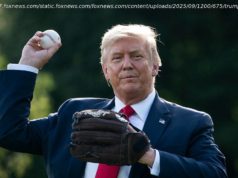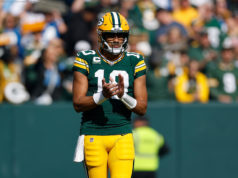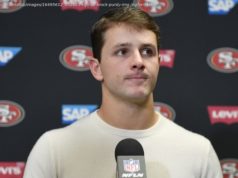Google and YouTube searches led to Kendall Wesenberg to becoming Modesto, Calif.’s first Winter Olympian. She’ll compete in skeleton in Pyeongchang this week.
Kendall Wesenberg often hears about how she’s the epitome of California cool in a sport that would make most Golden State residents break into a cold sweat if they tried it.
But the city of Modesto, California’s first Winter Olympian says looks are deceiving, especially when it comes to driving a skeleton.
«Everyone thinks that I’m all calm, and I look that way when I put my helmet on and I kind of don’t show much expression-wise but, yeah, there’s always nerves,” she said. “Anytime you step to the line in our sport there are a little bit of nerves.»
Wesenberg makes her Olympic debut this week in Pyeongchang as a member of the U. S. skeleton team, a slide sport that isn’t for the faint of heart.
It involves riding head-first, face-down on a tiny sled down a winding, steep track at speeds exceeding 70 miles per hour.
With their faces only inches from the iced concrete surface, skeleton athletes steer their sleds with either their knees or shoulders.
«It’s basically like any sledding hill you did as a kid, but super-sped up,» Wesenberg said. «It comes at you really fast the first couple of times. They tell you to try and count corners and keep awareness of where you are. I love it.»
For someone who hails from a place that’s not a winter sports mecca, Wesenberg has enjoyed a steady rise as a world-class skeleton athlete. She won her first-ever race in 2014 and became the first American to win a European Cup title in 2015.
Not bad for someone who knew little about the sport prior to 2010. That’s the year she watched the bobsled competition at the 2010 Winter Games in Vancouver on television and became curious about how she could transition from a soccer athlete to into a bobsledder.
«I Googled it, which led me to the USA Bobsled and Skeleton page,» she said. «I was like ‘What is skeleton?’ So I put that in YouTube. I was, like, ‘This is awesome, how do people go about getting into this?’»
She found a combine — a tryout — test and scoreboard on the USA Bobsled and Skeleton page and filled it out. She learned that her body type and size were more suitable for skeleton than bobsled.
Wesenberg attended a combine in Lake Placid, New York, in 2010 then returned to the University of Colorado to complete her studies in business administration.
«Second semester senior year, when everyone starts thinking about jobs and what they’re doing next and where they’re moving, I was like ‘I think I want to give this skeleton thing a shot.,» she said.
After graduating in 2012, she moved to Park City, Utah, to pursue her skeleton dream.
Wesenberg’s parents were impressed with her determination but were slightly nervous about her post-college pursuit. They balanced encouragement with a push to line up job prospects.
«As a parent, you call friends of friends and we had interviews set up for her to get what you would call a ‘real’ job,» dad Carl Wesenberg recalled. «She said ‘No, I’m really into this skeleton thing.’ Like most fans, I thought it (skeleton) was like when a kid goes to the skateboard park, wins some local skating competition, and there’s a prize, a $200 gift certificate.»
Her parents didn’t realize that she was a world-class skeleton competitor until they saw her race for the first time at the Olympic track in Salt Lake City.
«Kendall goes to Park City and gets two retail jobs so she can go to the track at night to slide — one that paid well that she didn’t like, one that paid poorly that she did like,» Carl Wesenberg said. «She works those two jobs to get an apartment to share so she could get track time to try to catch up with everybody. It was pretty impressive. I still thought she should get a real job.»
The Olympics has been a staple of Wesenberg family life. Carl and Laurie Wesenberg’s first date was the beach volleyball competition at the 1984 Summer Olympics in Los Angeles.
The family attended Summer Olympics in Beijing, London, and Rio de Janeiro and Winter Games in Vancouver and Sochi «as a way of taking a family vacation and showing them the world,» Carl Wesenberg said.
But with his daughter’s competition beginning Friday, these Winter Games won’t be the usual care-free family holiday.
«I’m having such a tough time believing this is a reality,» Carl Wesenberg said. «To have her named to the team is one thing, to have her getting her gear is another thing. And then to see her there — I’m on Facebook going ‘Oh, it’s real.’»






